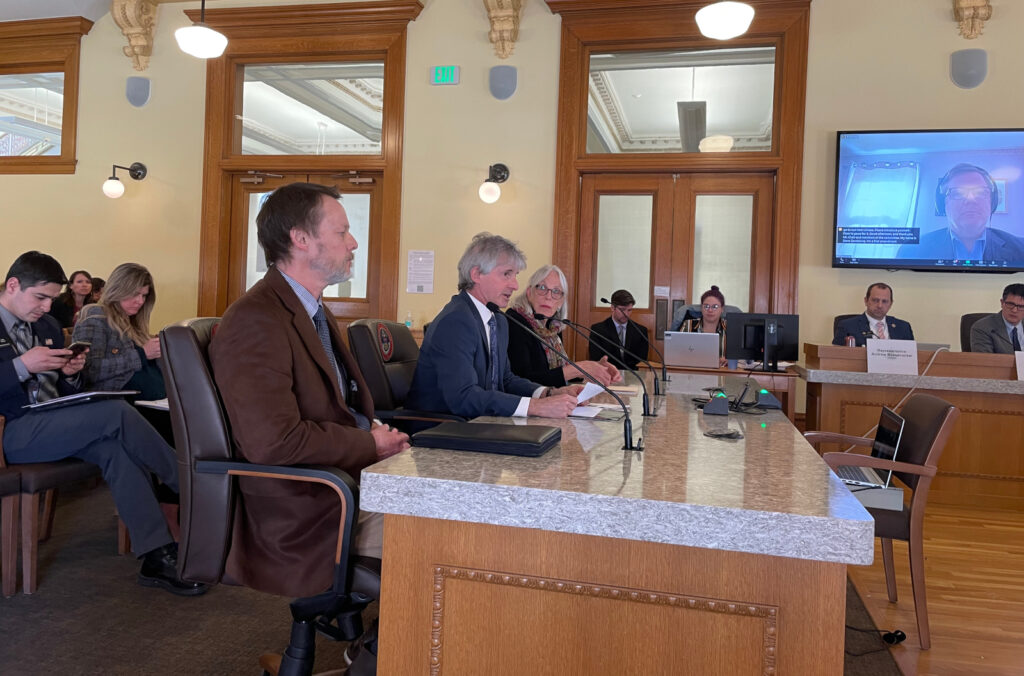Update: The House concurred with Senate amendments to HB 23-1259 and repassed the bill on Thursday, May 4, sending it to the governor.
By Jeffrey A. Roberts
CFOIC Executive Director
An open meetings bill in the Colorado legislature no longer requires plaintiffs to pay the court costs and attorney fees of local government bodies they unsuccessfully sue over executive session announcements.
State senators late Thursday removed that House Bill 23-1259 provision, which the Colorado Freedom of Information Coalition had pointed out established a risky financial barrier for anyone interested in filing an accountability lawsuit over whether a local public body announced a closed-door meeting with enough specificity. The civil courts are the only venue for enforcing Colorado’s open-government laws.
The bill, which passed 3-2 in the Senate State, Veterans and Military Affairs Committee, still makes it more difficult to challenge an inadequate executive session announcement. It lets local public bodies “cure” an executive session-announcement violation of the Colorado Open Meetings Law at a subsequent meeting. And to have legal standing to challenge a violation, a person must provide written notice at least 14 days before a regular meeting of the public body. Prior to that meeting, the secretary or clerk of the public body must communicate with the person “to determine if the challenge can be resolved” without a lawsuit.

“It is a tremendously overbroad and unnecessary bill that will gut the requirement to inform the public what is being discussed behind closed doors by every city council, board of county commissioners and all 3500 special districts in the state,” said CFOIC president Steve Zansberg following the Senate committee vote.
All that’s needed, Zansberg maintained, is the provision — added to HB 23-1259 in the House — barring pro se litigants who challenge executive session announcements from collecting costs and attorney fees. That language is aimed specifically at Pagosa Springs attorney Matt Roane, who has represented himself in 46 open-government lawsuits over the past three years, often settling with school districts and other local governments for amounts of about $3,000.
“Senators should not so severely diminish transparency when the attorney fees provision alone completely solves the rural school districts’ problem,” Zansberg said.
Since 2001, the open meetings law has required state and local public bodies to announce the topic of each executive session — prior to taking a vote to convene the private meeting — “in as much detail as possible without compromising the purpose for which the executive session is authorized.” Mandating topic specificity provides community members with something more than a vague idea of why their elected officials are excluding them from a meeting. It gives the public a way to police whether public bodies might be straying from the law, and it gives public officials a framework for avoiding confidential discussions of unauthorized topics.
“It isn’t a hard process, it’s not rocket science, nor is it new law,” testified Elizabeth Steele of Colorado Common Cause on Thursday. “These local boards just need to comply with the law that has been there for decades.”
The Colorado Court of Appeals upheld the executive session announcement provision in 2020, ruling that Basalt town councilors violated the law by convening four executive sessions to discuss legal and personnel matters without telling the public specifically what they would be talking about.
HB 23-1259 now heads to the Senate floor.
Follow the Colorado Freedom of Information Coalition on Twitter @CoFOIC. Like CFOIC’s Facebook page. Do you appreciate the information and resources provided by CFOIC? Please consider making a tax-deductible donation.
